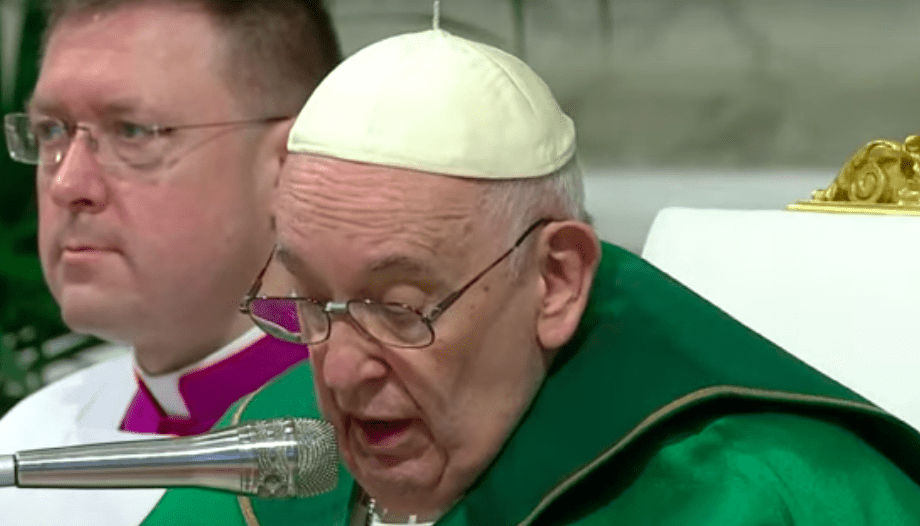 "The word of God in our life". Third Sunday in Ordinary Time
"The word of God in our life". Third Sunday in Ordinary Time Voice of the Mass. Read and proclaim the Word of God well
Voice of the Mass. Read and proclaim the Word of God wellPope Francis has delivered a speech homily special on the occasion of the Sunday of the Word of God. The Holy Father says that, after years of hidden life, Christ has an urgency that impels him to go to Capernaum, "a place of passage, a crossroads of different peoples and cultures".
This urgency "is the proclamation of the Word of God, which must be brought to all". The action of Jesus points out that "the Word is for everyone, the Word calls to conversion, the Word makes proclaimers".
The Word is for everyone
Studying the mission of Jesus, the Pope says: "The Gospel presents us with Jesus always on the move, on the way to others. On no occasion in his public life does it give us the idea that he is a static teacher, a doctor seated in a chair; on the contrary, we see him as an itinerant and pilgrim, traveling through towns and villages, encountering faces and stories. His feet are those of the messenger who announces the good news of God's love".
Christ goes out in search of everyone, he is not afraid to meet them. He is "the Word of God, who heals and lifts up, not only for the righteous of Israel, but for everyone; he wants to reach those who are far away, he wants to heal the sick, he wants to save sinners, he wants to gather the lost sheep and lift up those whose hearts are weary and burdened. Jesus, in short, "goes beyond" to tell us that God's mercy is for everyone".
This, says the Pope, is fundamental for us, because "it reminds us that the Word is a gift addressed to each one and that, therefore, we can never restrict its field of action, because it, beyond all our calculations, springs forth spontaneously, unexpectedly and unpredictably, in the ways and times known to the Spirit".
If Christ was no respecter of persons, but came to save all, the action of the Church must have the same dynamic. We cannot "profess faith in a God with a broad heart and be a Church We are called to preach salvation to all and make the way to receive it impracticable; we know we are called to proclaim the Kingdom and neglect the Word, distracting ourselves in so many secondary activities".
The Word calls for conversion
Regarding the second aspect of the Word, the call to the conversionFrancis says that "the nearness of God is not neutral, his presence does not leave things as they are, it does not preserve a tranquil life. On the contrary, his Word shakes us, unsettles us, urges us to change, to conversion; it puts us in crisis because it is living and effective, and sharper than any double-edged sword".
And, like a sword, "the Word penetrates life, making us discern the feelings and thoughts of the heart, that is, making us see which is the light of good to be accommodated and where, on the other hand, the darkness of vices and sins to be fought against is present. The Word, when it enters us, transforms our heart and mind, changes us, leads us to orient our life towards the Lord".
What does all this mean for those who listen to the Word? Francis answers: "God has become close to you, make room for his Word and you will change the perspective of your life". With this, the Holy Father also invites us to place our lives under the Word of God.
In addition, the Pope poses some questions for each of us to reflect on: "Where does my life find direction? Where does it draw its orientation? From the many words I hear or from the Word of God that guides and purifies me? And what are the aspects in me that require change and conversion?"
The Word makes heralds
The last aspect on which the Pope focused during his homily was the fact that the Word makes annunciators. "Jesus passed by the shore of the Sea of Galilee and called Simon and Andrew, two brothers who were fishermen. He invited them with his Word to follow him, telling them that he would make them fishers of men". These brothers, who "for sailing and fishing had learned to leave the shore and cast their nets out into the deep, would become apostles capable of sailing on the open sea of the world, of going out to meet their brothers and of proclaiming the joy of the Gospel".
In this idea is enclosed the dynamism of the Word, which "draws us into the web of the Father's love and makes us into apostles who feel the irrepressible desire to get everyone they meet into the boat of the Kingdom".
Francis warns that "even today we are invited to be fishers of men. Let us feel called by Jesus himself to proclaim his Word, to bear witness to it in everyday situations, to live it in justice and charity, to give it flesh by caressing the flesh of those who suffer. This is our mission, to become seekers of those who are lost, of those who feel oppressed and discouraged, not to bring them to ourselves, but the consolation of the Word, the impetuous proclamation of God that transforms life".
The Pope concludes his homily by thanking all those who dedicate themselves to preaching or studying the Word of God, and hopes that this proclamation will become "consolation and reward" for all.











